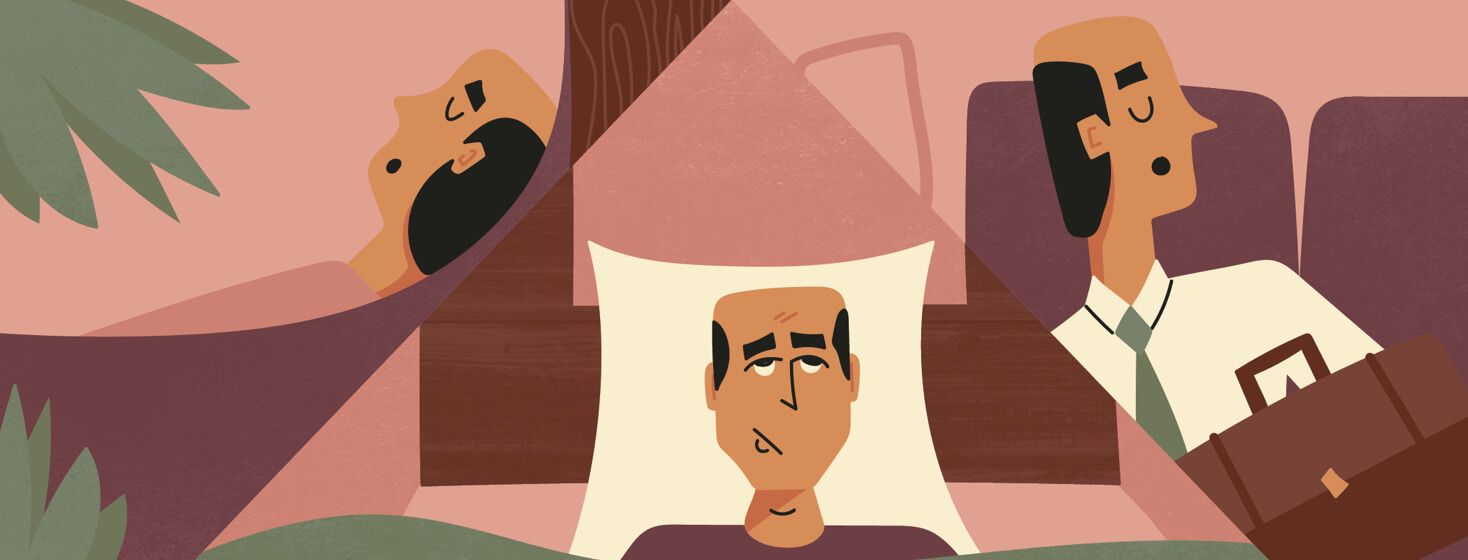Why Insomniacs Don't Really Have Trouble Sleeping
The irony of insomnia is that I can sleep almost anywhere. I easily fall asleep on the couch watching TV, on a train or plane, or on my hammock in the backyard. Falling asleep within the first 20 minutes of a movie is my specialty and my definition of “Netflix and chill.”
My colleagues and I share a joke that’s funny because it’s true: “People with insomnia don’t have trouble sleeping. They can sleep almost anywhere. They only have trouble sleeping in their beds.” To take it one step further, the harder I try to sleep, the more elusive sleep is.
The harder you try, the worse you sleep
One of the biggest conundrums about insomnia is that the more effort you put into trying to sleep, the less successful you generally are. I’ve had patients who have developed elaborate bedtime routines, timed their sleeping medication down to the minute, and spent untold amounts of money on fancy linens and noise machines that they pack with them when they travel.
Despite all their efforts, they find themselves staring at the ceiling instead of sleeping peacefully. Yet they doze off as soon as they’ve given up on conjuring sleep.
Sleep must come naturally
If you’re like me, you’re most likely to fall asleep when you stop thinking about sleep and focus on something else. Sleep is a natural biological process that takes place when certain conditions are met. One of the most important conditions is being relaxed.
For me, that’s most likely to happen when I’m watching TV, listening to a podcast on the train, or reading on the hammock. So it’s not surprising that I tend to doze off in these situations but then feel alert and wide awake when I get into bed and start wondering, “what should I be doing right now to get better sleep?”
How to reduce your sleep effort
So how can you summon sleep without actually trying to summon sleep?
Have a nightly wind-down routine
Sticking with routine and stress-free tasks in the last 90 minutes before bed can help prime your mind and body for sleep. For example, my routine includes changing into pajamas, brushing my teeth, turning down the lights in my house, and reading for a half hour before bed. By the time I open my Kindle, my brain and body are already lulled halfway to sleep.
DON'T obsess about your wind-down routine
I’ve seen many clients negate the benefits of a wind-down routine by worrying about implementing it perfectly. For example, a client who planned to be in bed by 10:45 every evening. When he occasionally found himself running late, he would become worried that he was going to “lose” 15 minutes of sleep or that he missed his ideal window to fall asleep. His resulting anxiety undid any benefit of having a wind-down routine.
Focus on something else
When bedtime finally rolls around, stop thinking about sleep. I know that sounds counterintuitive. But a good way to reduce your sleep effort is to focus on something peaceful, like reading a book, practicing a relaxation technique, or snuggling your pet. You may find that your eyes start getting heavier as soon as you stop focusing on sleep.

Join the conversation